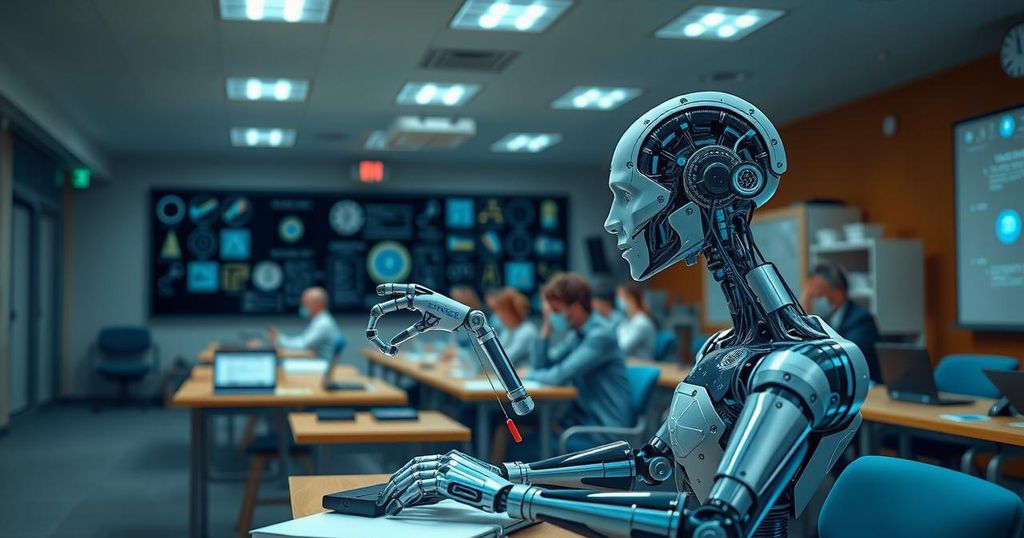The Transformative Role of AI in Shaping Education 4.0
AI is set to revolutionise Education 4.0 by augmenting teachers, refining assessments, and personalising learning experiences. It offers a means to address educational disparities while preparing students for the digital future. However, implementing AI requires a focus on equity, collaboration, and digital literacy to ensure that the benefits are accessible to all.
In the transformative age of Education 4.0, artificial intelligence (AI) emerges not as a replacement but as an enriching ally for educators. By automating mundane administrative tasks, AI liberates teachers, allowing them to dedicate their energy to fostering deeper connections with students. This approach embraces the ethos of enhancing human interaction in education, where personalised learning becomes the norm, catering to the individual needs of every learner.
AI’s role extends beyond support; it aims to redefine assessment methodologies. With AI-enabled analytics, educators gain unprecedented insights into student performance, enabling timely feedback and precise identification of learning strengths and weaknesses. Through these capabilities, the landscape of education transforms, ensuring each student’s unique learning path is recognised and enhanced.
Crucially, as we harness AI’s potential, we must also bridge the digital literacy gap. Preparing students for the workforce entails equipping them with essential skills in AI and digital technologies. This strategic integration of AI into the curriculum not only enhances students’ creativity and problem-solving abilities but also empowers them with the tools to navigate future career landscapes confidently.
Envision a future where personalised learning experiences become the gold standard. No longer a luxury but a possibility, AI enables tailored educational journeys that adapt to each student’s pace and style of learning, significantly improving outcomes, especially for those with diverse abilities. This bespoke approach not only enriches academic achievement but also fosters a sense of belonging in the educational environment.
Yet, while the promise of AI is vast, it comes with a responsibility. Any AI implementation must prioritise equity, ensuring that all students, regardless of background or ability, have access to these transformative tools. Co-designing educational solutions with input from educators, parents, and students paves the way for meaningful engagement and practical application of AI technologies in classrooms.
The concept of Education 4.0 arises from an ongoing need to adapt educational practices to align with the demands of the Fourth Industrial Revolution. This framework emphasises the importance of not merely transforming education through technology but doing so in a way that enhances the human touch in teaching. As AI technology develops, it becomes crucial to implement it thoughtfully and inclusively to bridge gaps in educational access and equity, ensuring all learners are equipped for the future workforce.
As we journey through the evolution of education in the 21st century, the integration of AI offers a beacon of hope for enhancing teaching and learning experiences. By embracing AI as a collaborative tool rather than a replacement, we can enrich educational practices, ensuring that each learner is celebrated and supported. The path ahead is one marked by equity, innovation, and a renewed commitment to student success that harnesses the full potential of AI while accentuating the irreplaceable value of human educators.
Original Source: www.weforum.org




Post Comment